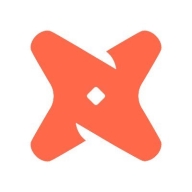

Azure Data Factory and dbt compete in data integration and transformation. ADF often has the advantage due to its extensive integration capabilities, while dbt leads with its strong transformation features.
Features: Azure Data Factory is recognized for its broad connectivity options to various data sources, visually intuitive data flow abilities, and end-to-end data pipeline management. dbt is noted for its focus on transforming data using SQL, providing automated data lineage for better versioning, and emphasizing analytics engineering with data modeling and testing functions.
Ease of Deployment and Customer Service: Azure Data Factory integrates easily into Microsoft ecosystems, benefiting from direct Microsoft support for quick deployment. dbt requires a more technical setup but offers flexibility with cloud-native capabilities and strong open-source community backing. ADF benefits from official support channels, whereas dbt utilizes community-driven resources.
Pricing and ROI: Azure Data Factory offers a pay-as-you-go pricing model, providing business predictability for scaling operations and highlighting its strong ROI aspects with straightforward pricing and support. dbt offers a combination of free open-source tools and a paid SaaS tier, which some find economical, especially when leveraging its transformation capabilities for enhanced data analytics precision, offering compelling ROI.
| Product | Market Share (%) |
|---|---|
| Azure Data Factory | 5.2% |
| dbt | 2.1% |
| Other | 92.7% |


| Company Size | Count |
|---|---|
| Small Business | 31 |
| Midsize Enterprise | 19 |
| Large Enterprise | 55 |
Azure Data Factory efficiently manages and integrates data from various sources, enabling seamless movement and transformation across platforms. Its valuable features include seamless integration with Azure services, handling large data volumes, flexible transformation, user-friendly interface, extensive connectors, and scalability. Users have experienced improved team performance, workflow simplification, enhanced collaboration, streamlined processes, and boosted productivity.
dbt is a transformational tool that empowers data teams to quickly build trusted data models, providing a shared language for analysts and engineering teams. Its flexibility and robust feature set make it a popular choice for modern data teams seeking efficiency.
Designed to integrate seamlessly with the data warehouse, dbt enables analytics engineers to transform raw data into reliable datasets for analysis. Its SQL-centric approach reduces the learning curve for users familiar with it, allowing powerful transformations and data modeling without needing a custom backend. While widely beneficial, dbt could improve in areas like version management and support for complex transformations out of the box.
What are the most valuable features of dbt?
What benefits should you expect from using dbt?
In the finance industry, dbt helps in cleansing and preparing transactional data for analysis, leading to more accurate financial reporting. In e-commerce, it empowers teams to rapidly integrate and analyze customer behavior data, optimizing marketing strategies and improving user experience.
We monitor all Data Integration reviews to prevent fraudulent reviews and keep review quality high. We do not post reviews by company employees or direct competitors. We validate each review for authenticity via cross-reference with LinkedIn, and personal follow-up with the reviewer when necessary.